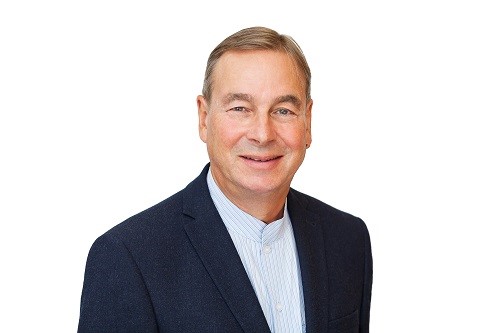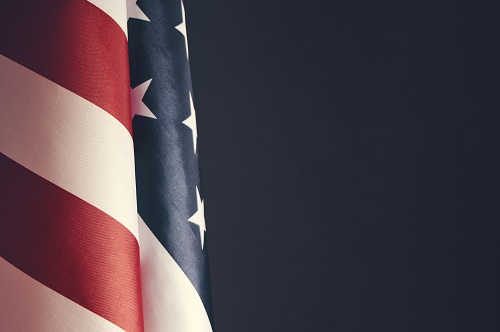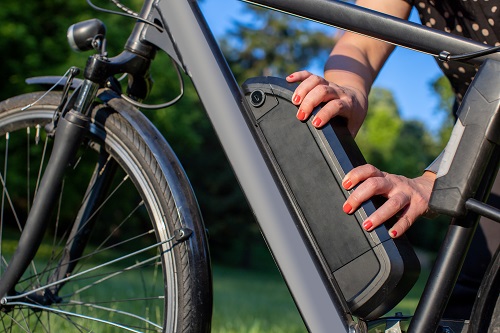Informa’s Digital Week took the slot in the calendar marked for the Safety Expo, from 18 to 22 May (now postponed until 2021). Safety Management reports on the highlights.
Features
Safety Expo gets a digital makeover
Opportunity knocks?
Dr Andrew Sharman, president of IOSH, chairing the opening session, the State of the Health and Safety Profession, said: “Current times have never been more exciting to be an occupational safety and health (OSH) professional, but also never more tense. This dilemma is a real opportunity for us.”
 Dr Andrew Sharman: "Leaders around the world are turning to us for advice and support."
Dr Andrew Sharman: "Leaders around the world are turning to us for advice and support."
He spoke of psychological challenges due to the coronavirus crisis, including the move to more remote working: “Humans crave connectedness, we want to feel part of a tribe, a group. It’s one of the reasons we like going to work.”
But he also offered the view that our enforced isolation may have given us the opportunity to strengthen our working relationships: “The collaboration techniques and communication styles that we’re building through being forced into alternative routes of working are going to have real value for us when we get back to work.”
Sharman challenged the panel to consider how health and safety professionals can step up to challenges presented by Covid-19, saying that “leaders around the world are turning to us for advice and support”.
Lawrence Waterman, Chair of the British Safety Council said OSH professionals should be standing up for the low-paid workers doing essential jobs who appear to be disproportionately affected by Covid-19: “They’re not the people who work in offices.”
 Lawrence Waterman: "Many people feel powerless."
Lawrence Waterman: "Many people feel powerless."
He explained: “If health and safety practitioners are going to be focused on making a difference, we need to look at the data of where the harm is arising and make sure our risk assessments and the way we engage reflect that. Many people feel powerless.”
He added that, while isolated working continues for many office-based workers, OSH professionals need to also call on their soft skills: “It’s not just about distancing and hygiene and looking at screening for symptoms, they need to think about starting a conversation, showing that OSH is also about kindness and compassion.”
ITV group risk director, Ruth Denyer, said the health and safety community has shown its strengths during the crisis: “The ability to change your views on a daily basis has been really important and something I think we are generally very good at. Understanding the risk, what things work and don’t work. We’re doing what health and safety does best.”
PPE supply chain starting to recover
A session with voices from the frontline of the supply and regulation of personal protective equipment (PPE) followed on day one. Adam Young, Marketing Director, Arco, said: “Demand has been through the roof on products. It’s happened at the same time as lockdown in China caused a significant reduction in supply, which resulted in enormous shortages and a big gap in supply and demand.”
Adam said that the supply chain is now “starting to recover” but warned the market is still “awash with fake and non-compliant PPE”. He said choosing what to buy could be a “minefield” for employers, highlighting how a type of common dust mask (P3) is in significant shortage, but alternatives (such as K3 masks) may not be approved or safe to use in the UK. But he added: “A shortage doesn’t change obligations and the process you should follow.”
 Matthew Judson: "Face coverings are not PPE."
Matthew Judson: "Face coverings are not PPE."
Face coverings are now compulsory for everyone on public transport, but face mask use has been a contentious issue with the government hesitating to bring forward its current recommendations.
Matthew Judson, director at JSP, gave his thoughts: “Face coverings for the public will do a really good job at stopping the exhaled stuff [virus-laden respiratory droplets] coming out – but face coverings are not PPE and they’re there to protect the people around you, not the other way round.”
He said he has seen some members of the public wearing masks with valves, which he said are ineffective against Covid-19: “Exhale valves won’t work – everything you breathe out is going to your neighbour. Unvalved masks are great at stopping [droplets] getting out and if fit tested, stopping them getting in.”
Nathan Shipley, PPE group certification manager at BSI (British Standards Institution) explained their job is to certify that PPE is safe to use: “We’ve been fast tracking certifications for new PPE coming into market, basing them on the European standards. Due to the sheer volume of inquiries, we’ve been completely overwhelmed.”
He praised the national effort to produce medical PPE – which has seen fashion retailers and small local businesses make masks and visors – but said it’s presented challenges: “We are seeing a lot of people who are not familiar with the regulatory side of PPE coming into the industry. We’ve worked more hours, bank holidays and weekends to get the PPE out the door for people who require it.”
Covid-19 and mental health
The Workplace Wellbeing show was condensed into one afternoon on the first day. We heard from speakers including Faye McGuinness, head of workplace wellbeing programmes at Mind and Peter Cheese, chief executive of the Chartered Institute of Personnel and Development (CIPD).
Faye said there was a crisis of mental health before Covid-19, with employers losing £45 billion in costs from poor mental health in 2019. “Covid has brought the issue to the forefront of people’s minds. It presents an opportunity to think about the drivers that were causing mental health problems before,” said Faye.
 Faye McGuinness at Mind said employers need to be clear about roles and responsibilities and workload to avoid triggering stress
Faye McGuinness at Mind said employers need to be clear about roles and responsibilities and workload to avoid triggering stress
She urged companies restructuring or changing their business priorities to be “clear [with their staff] about what’s expected now in the current environment” to avoid triggering stress caused by a lack of clarity over job role, or excessive workload.
Peter said presenteeism was still a top risk to mental health, quoting findings from its survey last year that 83 per cent of employees work when they’re not well. Isolation is not helping to improve that: “Technology is creating an ‘always on’ culture,” he said.
Both Faye and Peter thought that the crisis may, however, have brought workforces closer together and dissolved toxic hierarchies. “All the usual trappings are gone, we’re talking from our living rooms, showing our bookshelves and kitchens and showing our humanity,” said Peter.
Prosecutions on the horizon?
A session with Dr Simon Joyston-Bechal, director at Turnstone Law, explored legal issues including on whether employers can be prosecuted for Covid-19 exposures.
On this point he argued that they could, because under the Health and Safety at Work Act employers must take all “reasonably practicable steps” to safeguard their employees such as by planning for safety and providing information and instruction.
“I think this means there’s a criminal law requirement to keep up to date with the virus and to engage in planning and implementing all reasonable risk reduction measures and following government guidance where it is applicable,” he offered.
He said if employers were summoned to court in connection with a worker’s death from coronavirus, it would not be a defence to say they are not certain if the exposure occurred at home or at work: “Most of our health and safety laws fight on risk; on exposing people to risk rather than the outcome. Causation will rarely be an obstacle.”
He advised employers to protect themselves and their staff by looking at the worst-case scenario and how to prevent it. “Ask yourself if it goes wrong, will our current efforts look as if they go as far as is reasonably practicable? If not, you need to think about doing more.”
Home working: What do people think?
In Office space: rethinking how we work on day three, Chris Moriarty, director of insight & engagement, at the Institute of Workplace and Facilities Management (IWFM) spoke.
He shared the results of a survey with YouGov of 1,211 workers about their experiences of home working. “We found that 72 per cent are missing face-to-face chats and 61 per cent are missing face-to-face collaboration showing that there’s a [large] number who aren’t getting interaction companies are providing through Zoom or Teams.”
He added, however, that people are enjoying the financial savings of not commuting (70 per cent of respondents), more time to do personal tasks (53 per cent) and the majority (78 per cent) felt their employer supported them to work from home for an extended period of time and that they felt able to work effectively.
Questions were put to the panel on whether providing equipment such as chairs or desks might be made law for home workers. Michael Dowds, who manages workplace design standards at the Department for Work and Pensions, said yes. “The cost to business to supply equipment to work effectively and efficiently is probably quite small beer compared to running a corporate HQ or office building. From my view, [legal requirements] would be a natural thing to be heading towards.”
Looking to the future, Gavin Redmore, national energy manager at City Facilities Management Holdings, said employers could gain competitive advantage in this area: “It could attract talent to have a proactive home working approach; programmes to stay connected and wellbeing programmes to enjoy at home. There will be a talent dynamic that comes into it.”
He added, however, that while wellbeing support will be important, wellbeing will suffer without clear direction from the top: “The organisations that do well will be the ones that elevate workplace strategy above everything – to show how it’s going to support talent and [good] work. If we get to that point everything else will fall into place.”
Digital Week is still available on demand: bit.ly/3dJXV53
Safety Expo live has been rescheduled to 18-20 May 2021
FEATURES

A year on – what have been the developments in competence management and the golden thread?
By Sofie Hooper, Association for Project Safety and Anthony Taylor, Resolve Risk Ltd on 03 July 2025
Last July the authors published an article in Safety Management where we looked at the expectations for those responsible for managing competence and those creating and managing the golden thread. In this edition we provide an update on both these key requirements of the Building Safety Act/Fire Safety Act’s ‘new regulatory regime’ including for higher-risk buildings (HRBs).

Stars, stripes and safety
By Belinda Liversedge on 02 July 2025
It seems like America today is rarely out of the news, particularly since President Trump won his second term. Our ‘special relationship’ with America has continued, with the country a strong pipeline for inspiration, products and trends.

The hidden risks of lithium-ion batteries
By Adrian Simmonds, QBE Europe on 01 July 2025
With UK fire services now tackling at least three Li-ion battery fires a day, it’s clear that stronger regulation and enforcement is urgently required to prevent the sale, use and modification of poor-quality and potentially dangerous batteries used in e-bikes and scooters.



